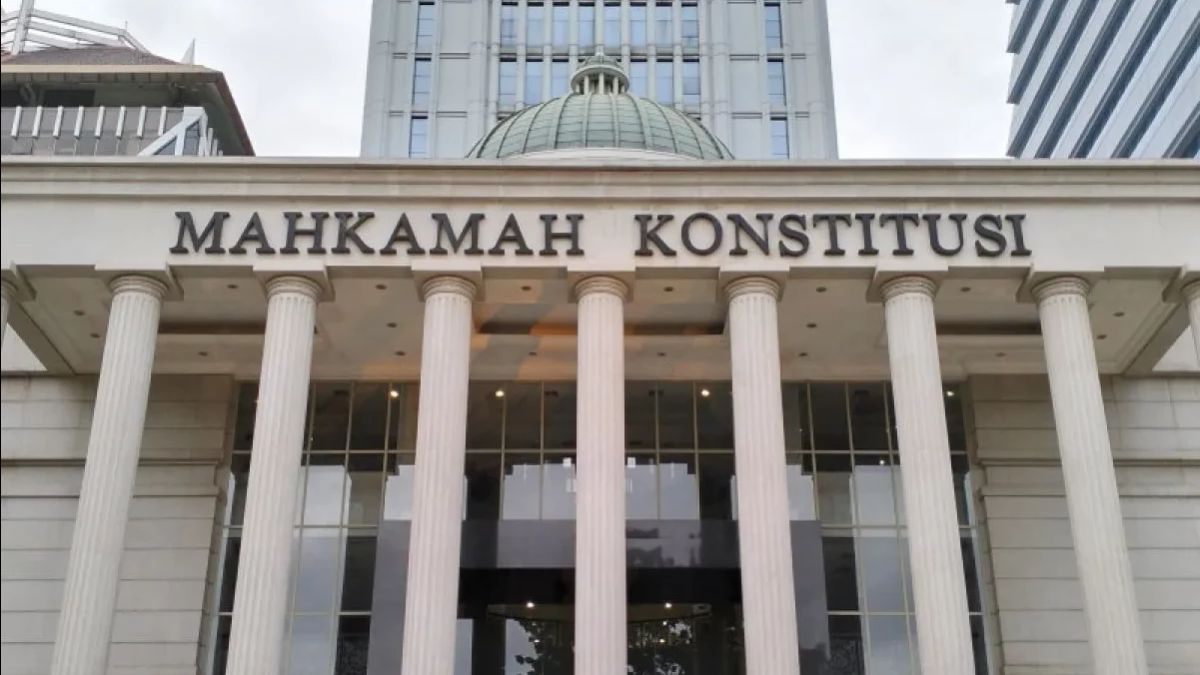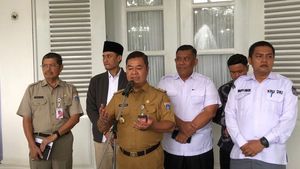JAKARTA - The Constitutional Court (MK) rejected requests for judicial review related to basic salary as well as allowances for lecturers and education personnel, including from private universities (PTS), paid from the State Revenue and Expenditure Budget (APBN) and/or Regional Revenue and Expenditure Budget (APBD).
"The verdict, trial, reject the petitioners' petition in its entirety," said the Chief Justice of the Constitutional Court reading out the verdict Number 135/PUU-XXI/2023 reported by ANTARA, Friday, November 29.
The judicial review was requested by lecturer at the Faculty of Law, Krisna Dwipayana University, Teguh Satya Bhakti, and Lecturer at the Faculty of Law, Universitas Muslim Indonesia, Fahri Bachmid.
The two applicants tested the constitutionality of Article 70 paragraph (3) of Law Number 12 of 2012 concerning Higher Education which reads: The organizing body as referred to in paragraph (2) is obliged to provide basic salary and allowances to lecturers and education staff in accordance with the provisions of the legislation.
According to the petitioners, the phrase in accordance with the provisions of the legislation' in the article is tested to create legal uncertainty, because it does not clearly state the type of laws and regulations in question.
In addition, the petitioners also argued that Article 70 paragraph (3) of Law 12/2012 cannot guarantee that the provision of basic salary and allowances by the organizing body to lecturers and education personnel can be fulfilled properly and optimally.
In the petitum, the petitioner asks the Constitutional Court that the article be changed to: The organizing body as referred to in paragraph (2) is obliged to provide basic salary and allowances to lecturers and education staff whose funds are sourced from the APBN and/or APBD.
Regarding the arguments of the petitioners, the Constitutional Court explained that Article 31 paragraph (4) of the 1945 Constitution of the Republic of Indonesia requires the government to allocate an education budget of at least 20 percent of the APBN and APBD.
Even though the education budget is at least 20 percent, it should be prioritized for basic education, but the government in practice also allocates it for higher education.
SEE ALSO:
In this case, for state universities (PTN), the budget allocation is used for operational costs, lecturers and education personnel, as well as investment and development.
Meanwhile, for PTS, budget allocation is used as assistance for professional allowances for lecturers, honorary allowances for professors, as well as investment and development. This is as stipulated in Article 89 of Law 12/2012.
"Based on this above, it has been clearly seen that the budget allocation for PTS is also used for professional allowances for lecturers and honorary allowances for professors. In fact, the government also places lecturers with ASN status in certain PTS," said Constitutional Justice M. Guntur Hamzah reading out the Constitutional Court's legal considerations.
Article 49 paragraph (2) of Law Number 20 of 2003 concerning the National Education System basically states that the salary of lecturers raised by the government is allocated in the APBN.
Meanwhile, for PTS lecturers appointed by the PTS organizing body, the salary and allowances are determined based on the work agreement between the lecturer concerned and the PTS organizing body which is subject to laws and regulations, including in the employment sector.
On the other hand, after paying close attention to the norms of Article 70 of Law 12/2012, according to the Constitutional Court, the phrase in accordance with the provisions of the laws and regulations' is intended to refer to the norms in the laws and regulations, namely Law 12/2012, Law 20/2003, and Law in the field of employment.
"So, the basic salary and allowances paid to lecturers by the education agency unit PTS are included in the meaning intended in the phrase 'in accordance with the provisions of the legislation' as argued by the petitioners," said Guntur.
Therefore, the Constitutional Court concluded that the arguments for the petitioners' petition were not legally justified in its entirety.
The English, Chinese, Japanese, Arabic, and French versions are automatically generated by the AI. So there may still be inaccuracies in translating, please always see Indonesian as our main language. (system supported by DigitalSiber.id)

















